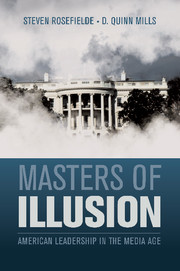Book contents
- Frontmatter
- Contents
- List of Tables and Figures
- Preface
- Acronyms
- Executive Summary
- Acknowledgments
- PART I NATIONAL SECURITY IN THE NEW AGE
- PART II AMERICAN PUBLIC CULTURE AND THE WORLD
- PART III AMERICAN PUBLIC CULTURE AND OURSELVES
- PART IV THE RECONFIGURATION OF NATIONAL WEALTH AND POWER
- 8 The Economic Roots of American Power
- 9 Economic Disparities among Nations
- 10 Geopolitical Aspirations of the Nations
- PART V VORTEXES OF DANGER
- PART VI THE AMERICAN RESPONSE
- PART VII LEADING TOWARD PEACE
- PART VIII AMERICAN PRESIDENTIAL LEADERSHIP
- Notes
- Glossary
- Bibliography
- Index
8 - The Economic Roots of American Power
Published online by Cambridge University Press: 31 July 2009
- Frontmatter
- Contents
- List of Tables and Figures
- Preface
- Acronyms
- Executive Summary
- Acknowledgments
- PART I NATIONAL SECURITY IN THE NEW AGE
- PART II AMERICAN PUBLIC CULTURE AND THE WORLD
- PART III AMERICAN PUBLIC CULTURE AND OURSELVES
- PART IV THE RECONFIGURATION OF NATIONAL WEALTH AND POWER
- 8 The Economic Roots of American Power
- 9 Economic Disparities among Nations
- 10 Geopolitical Aspirations of the Nations
- PART V VORTEXES OF DANGER
- PART VI THE AMERICAN RESPONSE
- PART VII LEADING TOWARD PEACE
- PART VIII AMERICAN PRESIDENTIAL LEADERSHIP
- Notes
- Glossary
- Bibliography
- Index
Summary
The American economy provides the sinews of American power in the world. It's not only the world's largest economy, but also the fastest growing among the developed countries. The secret of the American economy's success is not only free enterprise and markets, which could be copied abroad, but an economic culture derived from our history – something it is very hard if not impossible to replicate abroad.
In 1875 the great English economist Alfred Marshall visited the United States for four months, and when he returned to England said that he had been enabled by his trip to “expect the coming supremacy of the United States, to know its causes and the directions it would take.” His mission is of no less significance for us now, one hundred and thirty years later, as it was then. During all the discussions, year after year, of the decline of American power, the opposite has been happening and continues to happen.
Like any people we find ourselves where we are because of what has happened in our past. As Americans we are prisoners of our economic success that imposes on us great responsibilities in the world. It is striking that America has not sought global power so much as it has stumbled into it all the while seeking to be left alone behind its ocean barriers. Power has emerged from the richness of our continent, the energy of our people, and the freedom of our economic and political systems.
- Type
- Chapter
- Information
- Masters of IllusionAmerican Leadership in the Media Age, pp. 133 - 169Publisher: Cambridge University PressPrint publication year: 2006

